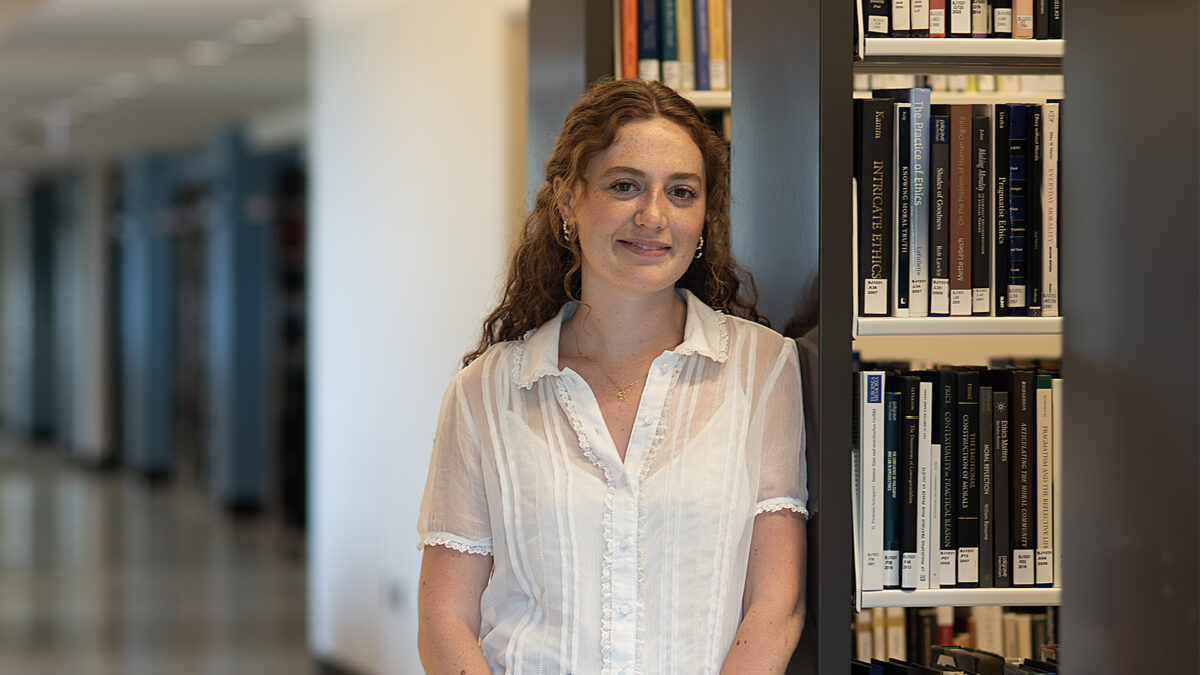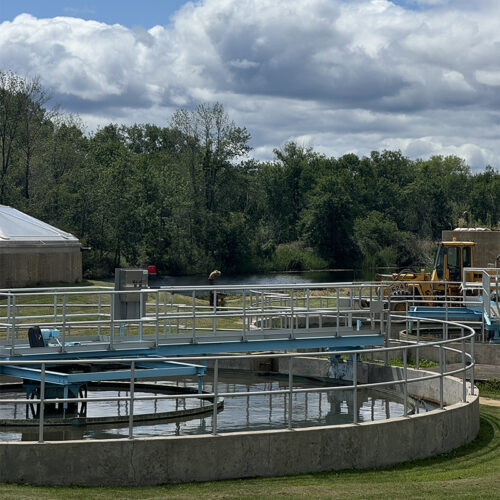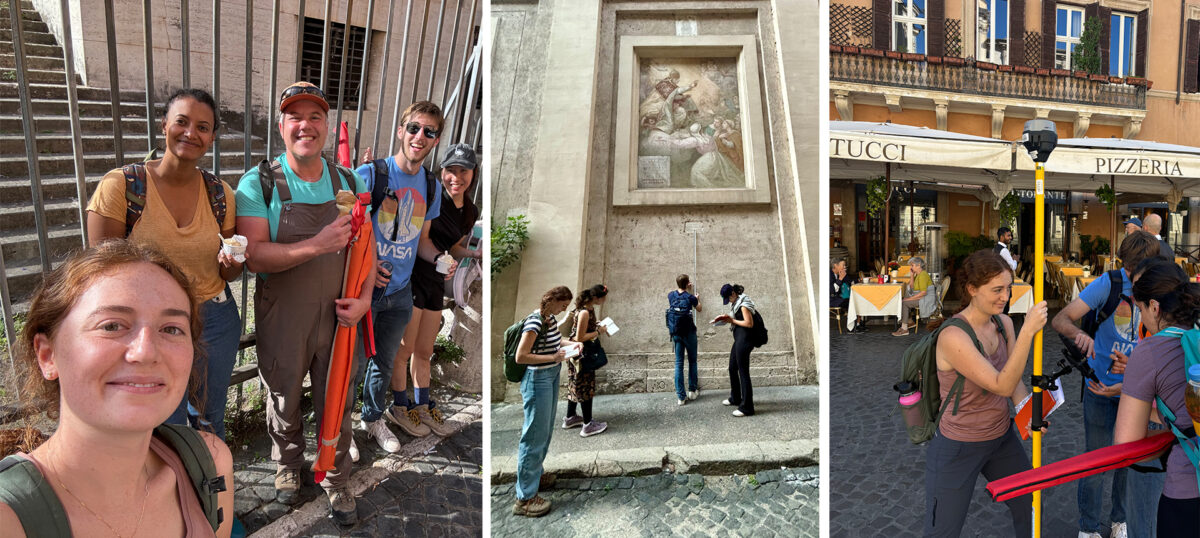
Ashley Holmes: Securing a clean and resilient water supply
Ashley Holmes always knew she wanted to work in an environmental field. But until coming to Princeton, she didn’t know that field would be the water sector.
Holmes, a junior environmental engineering student, is originally from southern Indiana, which for many years was the region in the United States with the highest concentration of super-polluting power plants. Growing up, she envisioned herself combatting the air pollution that gave her region its dubious distinction.
But as a Princeton student, she was struck by the focus of many engineering courses on water. Inspired by her coursework, Holmes participated in an internship following her sophomore year through the Andlinger Center for Energy and the Environment, dedicated to improving water and wastewater utilities’ services and climate resilience.
“I knew I wanted to work on a water-related project, but at the same time, I wanted to work on a project that was industry-facing,” Holmes said. “This was an opportunity to do both.”
As an intern, Holmes worked with the non-profit Moonshot Missions, which helps communities and utilities secure affordable access to clean water. Embedded in the organization’s Great Lakes team, Holmes was able to interact with and learn from a range of stakeholders in the water sector, from plant operators in Wisconsin to state regulators in Michigan.
For instance, she collaborated with individuals from Moonshot Missions; the Michigan Department of Environment, Great Lakes, and Energy (EGLE); and the Ohio EPA Wastewater Compliance Assistance Unit to prepare a document for wastewater utilities that provides guidance on cost-effective phosphorus removal strategies.

Another project saw Holmes visiting a wastewater treatment plant in the small city of Oconto, Wisconsin. Because the treatment plant was built only a few yards away from the Oconto River, it has become susceptible to increasingly frequent flooding. Holmes and the Moonshot Missions team prepared and presented resilience strategies to the treatment plant operators, such as relocating some of the most vulnerable treatment processes and reinforcing sections of the plant with flood walls.
“Ashley exemplifies the excellence we have seen in a host of ACEE interns over the years,” said Moonshot Missions founder George Hawkins, a 1983 Princeton alumnus. “We offer the chance for students to connect their classroom learning to real-world challenges and solutions. In return, we gain research, analytical, and writing expertise as we develop creative water solutions for small and low-income communities.”
Not only did her internship with Moonshot Missions help her excel in a course she took the following semester on technologies for water pollution (taught by Peter Jaffé), but she said it also showed her the many innovations taking place in the water sector.
“We’ve been doing water treatment for many years, so it might seem at first like a well-established field without much growth,” Holmes said. “But I learned that there are always new challenges, whether that be emerging contaminants like PFAS, new and more efficient treatment technologies, or hardening infrastructure against the impacts of climate change. There are still many opportunities for creativity and innovation.”
Beyond her internship, the water sector has seeped into other aspects of Holmes’ time at Princeton.
For instance, Holmes is a co-project manager for the Engineers Without Borders Ecuador team. The team is working to provide a safe, sustainable, and reliable water system to the small village of Rosario Vainas. Currently, the town’s roughly 550 residents must either spend a significant amount of their income having water trucked to them or draw from small, hand-dug wells often contaminated by agricultural runoff.
Holmes also served as an undergraduate teaching assistant for the freshman seminar “Rise and Fall: Geodesy, and the History of Roman Floods,” taught by Adam Maloof and Frederik Simons. As part of the seminar, students trekked throughout Rome to trace the rise and fall of the Tiber River through stone plaques — located on historic buildings around the city — that mark major flooding events from the past 800 years.

This upcoming summer, Holmes will work with AECOM as a Water Resources Engineering Intern, working out of the company’s Chicago office.
While she said she still wants to explore other sectors beyond water during her time at Princeton, Holmes’ passion for working on environmental challenges is unchanged.
“I think environmental engineering is a much-needed discipline,” Holmes said. “Not only does it allow you to work on projects that can directly benefit communities, but it allows you to apply exciting engineering concepts to solve real-world challenges.”
Holmes’ internship with the Andlinger Center for Energy and the Environment was supported by Learning and Education in Service (LENS) funds.
Peter Jaffé is the William L. Knapp ’47 Professor of Civil Engineering. Adam Maloof and Frederik Simons are both professors of geosciences.